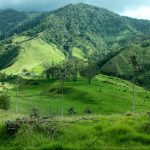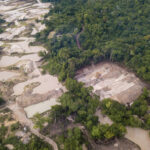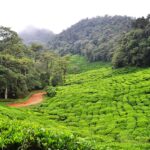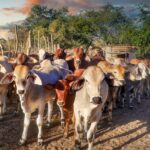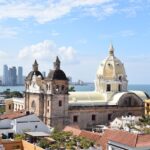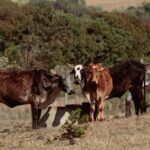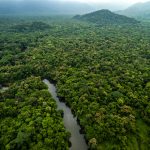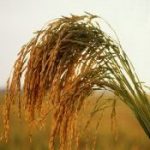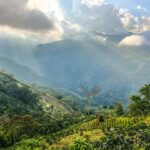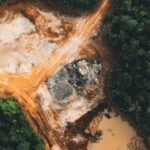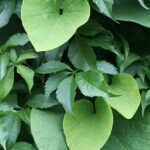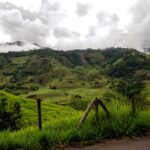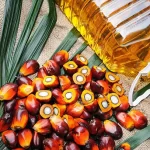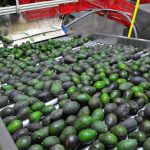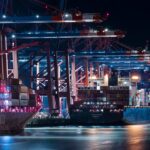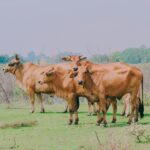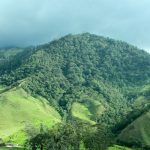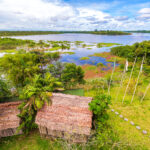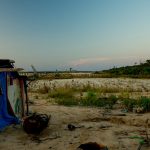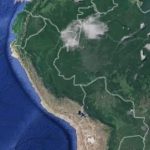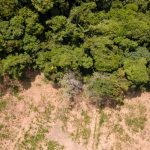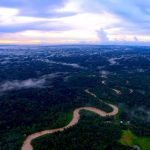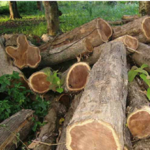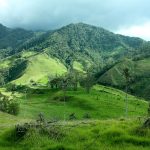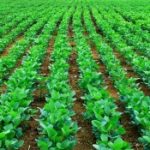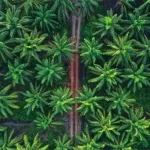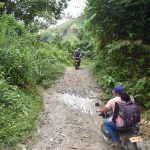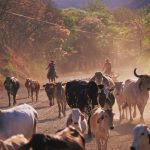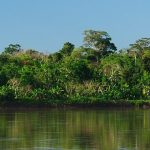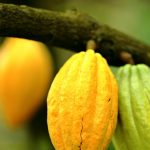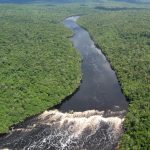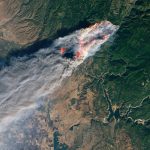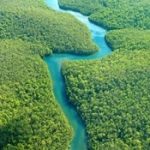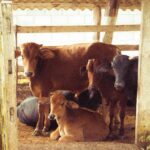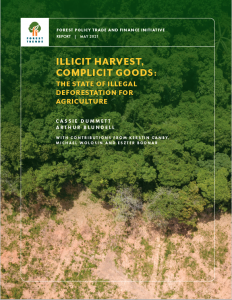Timber
Other Forest-Risk Commodities

- Illegal logging is widespread with illegal timber from the Amazon region primarily supplying the domestic market. Most timber sold to international markets is sourced from the Pacific region of Colombia. Governance remains weak in both the Amazon and Pacific regions.
- For all regions, fraud and corruption are common and there is a risk that illegal timber is laundered into supply chains for both the domestic and international markets.
- Despite several high-profile operations, enforcement is limited in capacity and Regional Environmental Authorities (REAs) do not monitor industry compliance with forest laws with enough regularity.
- Smuggled Peruvian and Ecuadorian timber is reportedly laundered into Colombian supply chains.
- Colombia imports and exports timber of unknown legal origin in violation of Colombian law.
- Colombia has a timber import regulation, but it appears rarely enforced.
Read more by downloading the Colombia Timber Legality Risk Dashboard here.
A new report from the Environmental Investigation Agency (EIA) estimates that about 94% of the wood for flooring and decking exported by Colombia between 2020 and 2023 lacked certification; about 20% of that wood went to the U.S., Canada and European Union countries.
Local Afro-Colombian and Indigenous communities in the Atrato watershed in northwestern Colombia are both victims and perpetrators in the illegal timber trade, trapped in what the investigation describes as modern slavery conditions with few economic options as deforestation renders their land infertile.
Mongabay interviewed José Homero Mutumbajoy, an experienced Indigenous rights defender in Colombia, to hear his take on some of the latest and biggest events affecting Indigenous communities and forests in the country’s Amazon.
Events include protests against Libero Cobre’s copper mine, the impacts of armed groups, protections of forests for isolated peoples and plans for the upcoming U.N. climate conference.
Extractive economies in Latin America, such as mining, fishing, and logging — where legal and illegal activity often intersect — along with crimes like wildlife trafficking and drug production, pose some of the gravest threats to the survival of the region’s ecosystems and the people who defend them. This article examines the main criminal economies driving the degradation of forests, rivers, and oceans across Latin America and the Caribbean: illegal gold mining, drug trafficking and its infrastructure, timber trafficking, land grabbing, illegal/unreported/unregulated fishing, and wildlife tracking
Colombia and Brazil share insights on their collaborative efforts to monitor and enforce laws against environmental crimes. By working together and utilizing advanced technologies such as satellite data, artificial intelligence, and near real-time monitoring. These tools empower law enforcement agencies to take faster, more decisive action against environmental crimes. For example, satellite imagery can detect illegal deforestation and mining activities as they happen, allowing authorities to respond quickly.
The Colombian Ombusdman’s Office has warned of 11 new violence hotspots in the country as the ELN, FARC dissidents, and the Gaitanist Self-Defense Forces of Colombia (Autodefensas Gaitanistas de Colombia – AGC) renew their struggles for territory and criminal profits.
Beyond drug trafficking, the region holds deposits of gold and coltan, along with vast forests where armed groups control illegal logging and extort loggers. While Mordisco and Calarcá have previously banned deforestation as a goodwill gesture in negotiations with the government, escalating conflict could drive both groups to seek additional revenue, potentially reactivating the illegal logging market as clashes intensify.
Lawmakers in Colombia are considering a bill that would create an improved traceability system for monitoring the movement of cattle, with the goal of controlling illegal deforestation connected to grazeland.
This would be the fourth attempt at passing such a law, after previous efforts in 2021, 2022 and 2023 came up short.
There are an estimated 30 million head of cattle in the country, requiring significant amounts of pasture, one of the main factors in the rise in deforestation last year.
If passed, the law would integrate multiple monitoring systems to improve communication between officials and their ability to identify where cattle are being raised, and would establish “high-surveillance zones” in deforested areas, requiring ranchers to share cattle registration information and install identification devices like ear tags.
Despite the uptick in deforestation, Colombian environment minister Susana Muhamad said 2024 still had the second-lowest deforestation figure in two decades.
Deforestation reached 1,070 square kilometers (413 square miles) last year after falling to just over 792 square kilometers in 2023 from around 1,235 square kilometers in 2022.
“What we’ve seen is an increase in 2024 in medium-sized patches of deforestation that involves operations paid for with large capital,” Muhamad told journalists in Bogota, noting the involvement of organized crime more than rural communities.
New data analyzed by EIA shows that threats to Colombia’s national parks persist. Tens of thousands of cattle are still grazing within three of Colombia’s most deforested national parks, according to official vaccination data, while hundreds of thousands have been transported from rural districts that partially or fully overlap with these parks.
These cattle then enter supply chains and are sold in urban centers like Bogotá, with no traceability back to their origins.
The Team Europe Initiative (TEI) supports capacity building and provides technical support on traceability
systems, geolocalisation and legality to partner countries, through a specialized Technical Facility and
programmes such as SAFE and AL-INVEST Verde. TEI programmes are active in Brazil, Colombia, Democratic
Republic of the Congo, Ecuador, Ethiopia, Indonesia, Kenya, Nigeria, Peru, Tanzania and Zambia. Burundi will
soon join the SAFE programme.
Indigenous communities in Latin America face extinction due to forest fires, many of them caused by illegal land conversion. This loss of culture is not unique to Bolivia. In Brazil, the Kayapo and Yanomami peoples have faced similar struggles as deforestation and illegal mining force them from their lands. The Asháninka and Awajún indigenous groups in Peru have been severely affected by forest fires in the Ucayali and Loreto regions, often caused by illegal logging and mining. In Colombia, deforestation and illegal land clearing in the Amazon have reached record levels, contributing to rising forest fires. The Tikuna and Huitoto people, who live deep in the Amazon, see their ancestral lands reduced to ash. In Ecuador, the Waorani people have been displaced by fires and oil extraction.
Latin America consistently has the most documented murders of land and environmental defenders – 85% of cases in 2023. Lethal attacks against defenders were concentrated in four key countries that accounted for more than 70% of murders: Brazil, Colombia, Honduras and Mexico. Colombia is the world’s deadliest country for land and environmental defenders, with 79 murdered in 2023 – 40% of all reported cases. With the same number of murders as Mexico but less than a tenth of population, Honduras emerged as the country with the most killings per capita in 2023.
Environmental crimes are destroying the Bolivian Amazon. In 2023, the loss of primary forests in Bolivia increased by 27 percent and reached its highest number on record for the third consecutive year: nearly 500,000 hectares, according to the Global Forest Watch platform.
The Plundered Amazon: The Roots of Environmental Crime in Bolivia, jointly published by InSight Crime and the Brazilian think tank Instituto Igarapé, highlights the transnational and cross-border dynamics of environmental crime in Bolivia, including wildlife trafficking, illegal mercury trafficking for gold mining, and timber trafficking.
Most of the deforestation in the Bolivian Amazon is due to gold mining and widespread land clearing for agribusiness .
A series of recently published data is shining a new light on patterns of deforestation in the Amazon, revealing where crops, cattle ranching and mining are encroaching on the rainforest.
Some of the crops are well-known drivers of deforestation, such as soy, but lesser-discussed crops are also present in the region, such as rice and sorghum.
Deforestation in Colombia has fallen to its lowest levels in 23 years, suggesting the government’s fight against environmental crime has yielded results. But criminal groups could also play a role in the decrease in destruction. This article summarizes some of the dynamics between government action, peace negotiations, political strategy, security and deforestation.
Early this year Colombia was lauded by NGOs and journalists around the world for protecting its forests. Deforestation had dropped precipitously and it seemed that President Gustavo Petro had delivered on his commitment to make Colombia a “world power in life.”
But these hopes were punctured at a press conference in early April when environment minister Susana Muhamad González announced there had been a historic spike in deforestation in the last months of 2023 and the start of 2024. Muhamad blamed armed groups—participants in Colombia’s decades-old internal conflict—saying that “nature has been put in the middle of the conflict.” The dissidents are accused of using deforestation as leverage in ongoing peace negotiations with the Colombian government.
The process of mining gold has had devastating environmental impacts in the department of Chocó, on Colombia’s Pacific coast. Record-high international gold prices over the last five years have spurred a rush in Chocó’s southern mining regions. Behind the large-scale illegal gold mining are criminal groups who fight each other for control of the region: the paramilitary successor group known as the Gaitanist Self-Defense Forces of Colombia (Autodefensas Gaitanistas de Colombia – AGC) and the National Liberation Army (Ejército de Liberación Nacional – ELN) guerrillas.
Unlike other illegal economies, illegal gold mining happens in plain sight. It takes less than an hour by boat from the city of Quibdó, the capital of Chocó, to reach these gold-mining monsters.
Illicit coca cultivation expanded in the Amazon basin and the Andean region the United Nations International Narcotics Control Board (INCB) indicated in its Annual Report 2023 released this March. This expansion, the report indicates, significantly impacts local ecosystems and biodiversity, leading to substantial deforestation, soil degradation, and loss of flora and fauna diversity.
Illicit drug production indiscriminately uses chemicals to boost harvests, leading to widespread contamination, while vast areas of forests are cleared to expand cultivation — giving rise to narco-deforestation.
This journal article found that, although the number of cattle present in a department does affect its annual deforestation rate due to a poor coverage of sustainably intensified cattle ranching systems, there is no relationship between deforestation and the access to credit nor any spatial correlations.
Bolivia is in the midst of a gold rush caused by record gold prices and growing international demand. This gold rush has been facilitated by permissive mining regulations that blur the line between legal and illegal.
The spread of mining throughout the country and the broader Amazon in the last few years has left deep environmental scars. Mining has become one of the main drivers of deforestation and is threatening protected areas and native communities.
Unlike other Amazon countries, such as Peru and Colombia, the main mining players in Bolivia are mining cooperatives. Their economic and political power, and the loosely regulated national industry they operate in, have emboldened them to expand their mining operations to the most remote corners of Bolivia’s Amazon, including protected areas. But their operations are too often associated with flagrantly illegal acts, as they operate without environmental license or in alliance with dubious Chinese and Colombian companies.
Bloomberg reports on the growth of palm oil production in Latin America where new, highly traceable supply chains are being established as traditional palm oil giants Malaysia and Indonesia have run out of land for further expansion without deforestation.
The overall rate of primary forest loss across the tropics remained stubbornly high in 2023, putting the world well off track from its net-zero deforestation target by 2030, according to a new report from the World Resources Institute.
The few bright spots were Brazil and Colombia, where changes in political leadership helped drive down deforestation rates in the Amazon.
Elsewhere, however, several countries hit record-high rates of forest loss, including the Democratic Republic of Congo, Bolivia and Laos, driven largely by agriculture, mining and fires.
Criminal gangs are increasingly infiltrating legitimate business sectors such as trade, and importing more illegal products into the Netherlands, police research bureau Politie & Wetenschap has warned in its latest report.
The researchers found that the trade in avocados, plastic waste and timber are particularly prone to criminal infiltration and gangs earn money by circumventing local and international rules and regulations.
Parts of the avocado trade in Mexico, Peru, Colombia and Chile are also being taken over by gangs, the report said. Extortion, theft from local avocado farmers, and illegal slash and burn practices to obtain more land to grow avocados are rife.
According to Global Canopy, US$6.1 trillion in funding was provided to the 350 companies with the greatest risk exposures to tropical deforestation by some 150 financial institutions in 2023.
Through this exposure, land conversion presents numerous supply-chain risks to firms, namely:
- The reputational risks posed by adverse media (exacerbated further if linked to any human-rights abuses in the context of land conversion).
- The legal risks represented by increasing regulatory and legislative pressures on companies and financial institutions to prevent deforestation.
- The physical risks present, given that most bank-financed businesses and commercial services ultimately depend on natural capital and resources directly or through their supply chains. Aggressive consumption of resources reduces their availability in the long term, undermining sustainable development and creating economic instability. Indeed, the World Economic Forum (WEF) has estimated that at least 50 percent of global GDP is reliant on nature and warned that the impacts of climate change would significantly destabilise global trade.
Last November, French NGO Sherpa filed a complaint with the National Prosecutor’s Office against French banks BNP Paribas, Crédit Agricole, BPCE, and Axa. It called for a criminal investigation into money laundering and concealment, arguing that the banks’ financial support for Brazil’s biggest beef companies was contributing to illegal deforestation in the Amazon.
From 2016-2018, 94% of Germany’s directly imported deforestation risk was linked to just five key commodities: soy, coffee, palm oil, cocoa and cattle. More than 90% of this comes from nine countries, including Brazil Colombia, and Indonesia. Deforestation risk in Germany’s supply chains has varied over time, but has recently begun to emerge in particular hotspots, such as Colombia.
Deforestation risk can be concentrated in particular areas within hotspots: more than half of Brazilian soy deforestation risk comes from just three municipalities in the Matopiba region.
As farmers see opportunities after exports to China get green light, Colombia must confront problems of traceability, deforestation and illegal ranching.
Last year, Colombian president Gustavo Petro travelled to Beijing and sealed 12 agreements with his Chinese counterpart, Xi Jinping, including a trade protocol paving the way for exports of Colombian beef to China.
According to experts from the country’s livestock farmers’ union, the country’s beef exports to China alone could now reach more than 100,000 tonnes per year by 2025 – more than double the 45,000 tonnes it exported in total in 2022.
AidEnvironment has e mapped the Colombian palm oil supply chain, assessed how the Unites States is tied to scope-3 emissions linked to global commodity trade and consumption. We have also mapped importing operators eligible under the EU Deforestation Regulation. Their datasets combine thousands of direct and indirect suppliers of key meatpackers, soy traders, and oil palm and industrial tree concessions globally with rural cadastre data, allowing for monitoring of real-time deforestation, degradation, and fires in their plots of land.
Deforestation in Colombia’s Amazon is forecast to have fallen 70% in the first nine months of 2023 from the year-ago period, Environment Minister Susana Muhamad said on Tuesday, though she warned drought could reverse the trend.
The government of leftist President Gustavo Petro, who took power in August last year, says it is prioritizing protecting the environment.
Deforestation across the country fell 29.1% in 2022 from 2021, reversing growth trends during the government of ex-President Ivan Duque.
New Global Witness report indicates that the UK’s two-year old environmental legislation has not affected deforestation due to lack of follow-up by the government.
Also covered here: Beef, soy and palm oil products linked to deforestation still imported into UK | Deforestation | The Guardian
FACT’s new report draws on interviews with local and regional activists, indigenous leaders, anti-money laundering experts, and government officials in Peru, Colombia, and the United States to show how financial secrecy contributes to facilitating these crimes. The report lays out a comprehensive U.S. reform agenda.
The report by the Financial Accountability and Corporate Transparency (FACT) Coalition, published on Oct. 26, said that “critical gaps” in the U.S. anti-money laundering system are vulnerable to exploitation by criminal groups, including those behind the destruction of the Amazon, the world’s largest tropical rainforest.
FACT’s analysis focuses on forestry crimes and illegal mining in Peru and Colombia. The report also summarizes how U.S. importers sidestep the law by not trading directly with the blacklisted Myanmar Timber Enterprise (MTE) but instead with non-sanctioned Myanmar exporters and middlemen based in Singapore, Thailand and other third countries.
On May 15, 2022, a guerilla group in Colombia called Estado Mayor Central (EMC) issued a surprising communique from the large swaths of Amazonian regions it controls, titled a “Manual of Coexistence.” The group announced a fine of 1 million pesos (roughly US$250) for every hectare (2.47 acres) of forest cleared. In the same communication, it also banned the sale of uncultivated land without express permission from its leadership.
Though Ebus and Rojas both agreed that regulations imposed by armed groups have led to a drop in deforestation in the past year, this dynamic comes with a risk, described in this article.
The United States, as the world’s largest economy and premier supplier of financial secrecy, has a crucial role to play in denying financial safe haven to criminals that would degrade the Amazon. The FACT Coalition’s 100-plus members, including prominent environmental organizations, advocate for policies to combat the harmful impacts of corrupt financial practices.
FACT’s new report draws on interviews with local and regional activists, indigenous leaders, anti-money laundering experts, and government officials in Peru, Colombia, and the United States to show how financial secrecy contributes to facilitating these crimes. The report lays out a comprehensive U.S. reform agenda.
For the past 11 years, Global Witness has documented and denounced waves of threats, violence and killings of land and environmental defenders across the world, and 2022 marks the beginning of our second decade documenting lethal attacks. The world has changed dramatically since we started documenting these in 2012. But one thing that has not changed is the relentlessness of the killings.
Last year, at least 177 defenders lost their lives for protecting our planet, bringing the total number of killings to 1,910 since 2012. At least 1,390 of these killings took place between the adoption of the Paris Agreement on 12 December 2015 and 31 December 2022.
New Global Witness report shows nearly 90% of all environment-linked killings in 2022 were in the region, driven by land disputes, armed conflict and extractive industries.
Colombia was found to be the deadliest country in the world, with 60 deaths in total last year – more than a third of all killings globally. These figures come despite the country’s move in October 2022 to ratify the Escazú Agreement, a legally binding regional treaty to protect environmental defenders, and is almost double the number of killings reported in the country in 2021.
Other vulnerable countries in the region where Brazil, where 34 defenders lost their lives, compared to 26 in 2021, and Mexico, although the 31 murders recorded in the country last year were a drop from 54 in 2021, when it was the country with the highest number of killings. With 14 land- and environmental-linked murders recorded, Honduras was the country with the world’s highest per-capita killings. Mexico has ratified the Escazú Agreement, while Brazil is yet to do so, having only signed the treaty at its creation in September 2018; Honduras has neither signed nor ratified the agreement.
The Estado Mayor Central, a group of FARC dissidents, has announced sanctions for deforestation in its territory.
In July, when Colombia announced that deforestation had dropped to the lowest level in nearly a decade, the news was hailed as a victory for left-wing President Gustavo Petro.
But experts say there is another reason for the dramatic drop: Armed rebel groups have taken it upon themselves to ban illegal logging.
Amazon nations have attacked in a joint declaration the “proliferation” of environmental rules in trade, echoing a growing backlash against new EU deforestation requirements.
The final document does not single out the European law specifically, but it condemns “the proliferation of unilateral trade measures based on environmental requirements and norms which constitute trade barriers”.
cross the more than 4,000 kilometers of border that divide Colombia, Venezuela, and Brazil, the gold mining rush has threatened the very existence of Indigenous communities and trampled on national parks. Illegal gold mining has soared to become the biggest destroyer of the rainforest, especially when supported by guerrilla groups, business owners, and political elites alike.
Meanwhile, on the border between Colombia, Peru, and Brazil, illegal logging and illicit crops are expanding as quickly as the loggers can tear down the trees. After promising jobs and training to Indigenous residents and gaining their trust, brokers become proxies for the forest management plans which these communities oversee. This allows them to launder illegal timber.
This five-part investigation traces the actors involved in environmental crimes and reveals the supply chains which support the looting of these border areas. To do so, InSight Crime has partnered with the Igarapé Institute, an independent thinktank located in Brazil that focuses on development, security, and climate issues.
Scattered domestic laws and competing interests intersect in the tri-border regions of the Amazon. Commitments to protecting its wilderness change with new political administrations.
Outgoing Brazil President Jair Bolsonaro scaled back efforts to fight illegal logging, ranching, and mining as part of an aggressive campaign to open the Amazon to more commercial development. President-elect Luiz Inácio Lula da Silva, better known as Lula, has promised a complete reversal.
Former Colombian President Iván Duque (2018-2022) put environmental crime at the heart of his security policy, but then did little as deforestation soared. Colombia’s current president, Gustavo Petro, has called protecting the Amazon one of the pillars of his agenda.
The Amazon forest and watershed shared by Peru, Colombia, and Brazil provide ideal cover for coca cultivation and processing. As a result, a cocaine trafficking chain has emerged there — one that begins with coca grown in Peru. The criminal infrastructure created to feed this trade also protects and promotes environmental crimes, such as illegal deforestation, timber trafficking, and illegal gold mining. The remote areas have little state presence, and the dense forest canopy makes illicit activities and armed groups largely invisible.
The tri-border where Colombia, Brazil, and Venezuela meet has continued to maintain its longstanding role as a transit corridor for cocaine. Though it’s not known as a drug production hub, the Venezuelan side may be seeing new coca cultivation.
Illegal loggers have begun to migrate to Brazil’s northern Amazon. According to a 2019 study that looked at illegal logging in the Anauá National Forest, loggers and sawmills are relocating from the Brazilian states of Mato Grosso, Pará, and Rondônia to Roraima, on the border with Venezuela and Guyana. The region has come to be seen as a “new gold woodland,” thanks to the large swaths of forest, low cost of land, and few controls on deforestation and logging, the study authors wrote.
Illegal timber harvesting in the tri-border regions is most prevalent in the Amazon forests of Peru, where a multinational operation with many tentacles targets high-value hardwood species, such as spruce (Virola calophylla), tornillo (Cedrelinga catenaeformis), and cedar (Cedrela odorata). Trees are felled, transformed into planks, and eventually exported. The process includes legitimizing the timber through logging and transport permits, sawmills, and brokers before shipping it to regional capitals like Bogotá and Lima, or to international markets such as China.
On the Colombian and Venezuelan sides, mining activities and businesses that have sprung up around the sites are taxed by criminals, ranging from a few gunmen to factions of Non-State Armed Groups (NSAGs). The latter include the ex-FARC, made up of dissident groups of the Revolutionary Armed Forces of Colombia (Fuerzas Armadas Revolucionarias de Colombia – FARC), which demobilized in 2017, and units from Colombia’s last remaining guerrilla force, the National Liberation Army (Ejército de Liberación Nacional – ELN). Brazil’s most powerful mafia, the First Capital Command (Primeiro Comando da Capital – PCC), also appears to be making inroads into the illegal gold trade.
Deep in the vast jungle of the Amazon, critical primary forests are being razed to mine gold, grow coca, and harvest timber.
Three rivers — the Caquetá (known in Brazil as the Japurá), the Putumayo, and the Amazon — and their many tributaries serve as arteries for this cross-border trafficking. The shared waterways are also highways for timber cut by illegal loggers, where gold dredges are operated by illegal miners.
Eight Amazon rainforest nations are expected to face divisions over proposals to block new oil drilling and end deforestation when they meet on Tuesday for their first summit in 14 years.
At a pre-summit meeting last month, Colombian President Gustavo Petro pushed his Brazilian counterpart Luiz Inacio Lula da Silva to block all new oil development in the Amazon. Brazil is weighing whether to develop a potentially huge offshore oil find near the mouth of the Amazon River.
In the world’s largest rainforest, cocaine and deforestation are increasingly linked. Forest loss is being accelerated by a metastasis of organized crime, including a surge in cocaine production, trafficking, and consumption.
These criminal activities are supercharged by the increasingly sophisticated and powerful organizations that control the region’s production and trafficking of drugs. Put simply, drug traffickers are diversifying their portfolios into the nature crime business. As a result, large tracts of the Amazon Basin, especially in those countries controlling the largest share of the rainforest (Brazil, Peru, Colombia, and Bolivia—in that order), are wracked by an ecosystem of crime.
Mongabay has begun publishing a new edition of the book, “A Perfect Storm in the Amazon,” in short installments and in three languages: Spanish, English and Portuguese.
Chronicling the efforts of nine Amazonian countries to curb deforestation, this edition provides an overview of the topics most relevant to the conservation of the region’s biodiversity, ecosystem services and Indigenous cultures, as well as a description of the conventional and sustainable development models that are vying for space within the regional economy.
While this article is a basic summary of recent reports on the trade of Myanmar teak and sanctions, it also lists a few countries where some FSC-certified or “ethical teak” can be found (Indonesia, Vietnam, Laos, Costa Rica, Brazil, Columbia)
An innovative new study featuring the methodological use of machine learning algorithms, published in Nature magazine, has revealed that more than 3 million hectares (7.4 million acres) of Amazonian Rainforest were cut down to make way for illicit activities between 1985 and 2019. The results of the analysis of the 34-year time frame showed that “the vast majority of deforestation … is attributed to stable cattle ranching lands.”
The study, published in February, illustrated how the loss of forest cover to make way for grazing pastures for cattle ranching has increased exponentially since the Peace Agreement between the Revolutionary Armed Forces of Colombia (FARC) and the Colombian government in late 2016.
Study linked here: The post-conflict expansion of coca farming and illicit cattle ranching in Colombia | Scientific Reports (nature.com)
This article provides background on the EUDR and potential for technology to monitor deforestation rates and help farmers provide information about their farming practices. A pilot in Indonesia is described, as well as potential future projects in Bolivia, Colombia and Honduras.
Almost half of the 401 murders of human rights defenders recorded in 2022 were against people involved in the defense of land and environment, according to the most recent report by the organization Front Line Defenders.
Latin America is the region with the highest number of cases of recorded violence against defenders.
The countries with the most cases are Colombia, Mexico, Brazil and Honduras.
Barclays has published new supply chain sustainability requirements for clients in forest-risk commodity sectors including beef and palm oil.
Barclay’s has added a new Forestry and Agricultural Commodities statement to its website this week. The statement stipulates that Barclays has “no appetite” to support companies directly involved in illegal forest clearance.
From the beginning of July, beef producers will not be able to undertake work in areas of the Amazon rainforest cleared or converted after 2008.
Those producing beef in South America will also need to prove that they gave deforestation-free supply chains by 2025. By the end of 2025, these firms will need to update their policy commitments on deforestation and human rights, and to monitor and report on deforestation-free product volumes.
Barclays (BARC.L) has told beef sector clients they must prevent deforestation in their South American supply chains, in a policy document seen by Reuters that toughens the bank’s stance but stops short of campaigners’ demands.
The Colombian smallholder group, Unión Temporal Entrepalmeros, has become the first independent smallholders in the country to obtain RSPO certification. In March 2023, The “Entrepalmeros” received their certificate for Milestone B, the final phase in the Independent Smallholder stepwish certification approach, encompassing a certified area of 897.53 hectares, with a fresh fruit bunch (FFB) volume of 15,456 MT. This achievement makes Colombia the second country in Latin America to gain certification within two years following the certification of four smallholder groups in Mexico in 2022, marking yet another milestone for sustainable palm oil in the region.
Colombia and Ecuador are implementing a system designed to alert about risks of violence against residents who live near the border, many of whom are Awá Indigenous people.
Since last August, thousands of Awá have been forcibly displaced or suffered threats, intimidation, torture or forced recruitment by organized crime groups participating in drug trafficking and illegal mining.
A recent study states that the deterioration of the Colombian Amazon over the past 40 years has been caused by cattle ranching rather than cocaine.
Research reveals that in 2018, the quantity of forest removed for the cultivation of coca, the main component of cocaine, was just 1/60th of that used for livestock. However, previous administrations have cited environmental concerns to justify stepping up their assault on the green shrub.
The study’s conclusions support conservationists who have long argued that Colombia’s approach to protecting the Amazon, which is frequently focused on halting coca cultivation, is misplaced, The Guardian reported.
BOGOTA (Reuters) – Colombia has lost 86,985 hectares (214,944 acres) of Amazon jungle in the first nine months of the year while fires burned through swathes of felled areas, a local advocacy group said on Monday.
The deforestation was concentrated in 11 areas across five of the country’s provinces – Meta, Caqueta, Putumayo, Guaviare and Antioquia, the Foundation for Conservation and Sustainable Development said in a report.
Tumaco, Colombia, Nov 3 (EFE).- Marino Midero had dedicated his entire life to felling trees in Colombia’s Nariño department until he pledged to stop deforestation under a collective conservation project and started producing cocoa.
Midero turned to cocoa when a processing plant, backed by an international cooperation project, opened in Bajo Mira y Frontera, in the rural region of Tumaco.
Some 53 villages in the community have reallocated over 37,500 hectares to the REDD+ project — United Nations-backed programs to reduce emissions caused by deforestation and forest degradation in developing countries.
The project was launched in 2011 to improve agricultural projects and curb deforestation.
Reuters — Colombia will focus on combating deforestation, exerting greater control over the cattle industry and will also propose cancelling external debt in exchange for conserving the environment, Environment Minister Susana Muhamad said recently.
BOGOTA (Reuters) -Deforestation in Colombia edged up for the second year in a row in 2021, rising 1.5% versus 2020 levels, the environment ministry said on Friday, as environmentalists warned of the impact of a high number of fires this year.
In 2021, 174,103 hectares (430,218 acres) of forest were destroyed, the ministry said in a statement.
Though no comparative figure was given on Friday, the ministry last year said 171,685 hectares had been destroyed in 2020.
The increase on-year takes the government further away from its target of reducing the rate by 30%.
The U.S. and Spanish governments are supporting Colombia’s efforts to curb deforestation and environmental crimes driven by narcotrafficking and organized crime. As such, the Spanish Interior Ministry and the Colombian Ministry of Defense agreed February 17, 2022 to strengthen their collaboration against these crimes, the Spanish government said in a statement.
Drug trafficking, illegal mining, and illegal logging in Latin America not only fuel violence, but also destroy the environment. “There was record destruction of the Amazon in 2020, as the rainforest loss an area around the size of Belize, and the situation looks even bleaker in 2021,” Insight Crime, an organization that studies organized crime in Latin America, said in a December 2021 report.
Government officials are hunting suspects accused of setting wildfires – but genuinely slowing rising deforestation will require a more proactive government presence in threatened areas, analysts warn.
Intense fires in Colombia’s Amazon region so far this year point to rising deforestation by people clearing land for ranching and other uses, alarming environment groups, while officials also warned of pollution caused by smoke. The burning is occurring in Colombia’s so-called arc of deforestation in Caqueta, Meta and Guaviare provinces, where it creeps into national parks and parts of the Amazon rainforest. Preserving the forest is considered vital for curbing climate change.
A new law in Colombia aims to address widespread impunity in cases of environmental crime and curb escalating rates of deforestation. The legislation, which took effect last August, comes at a time when deforestation continues to climb in Colombia, where more than 171,000 hectares (423,000 acres) were cleared in 2020.
Deforestation has risen in Colombia since the country’s largest guerilla group signed a historic peace deal with the government five years ago and withdrew from remote areas of the country, a report by the International Crisis Group found. The report published on Thursday said that cattle ranchers, loggers, miners, subsistence farmers and criminal groups have moved into areas formerly controlled by the Revolutionary Armed Forces of Colombia and are burning down forests to make way for legal and illegal businesses.
Environmental groups and indigenous activists from the Amazon region filed a lawsuit Wednesday in a French court alleging that France-based supermarket chain Groupe Casino is violating human rights and environment rules by selling beef linked to deforestation and land grabs.
The activist groups are seeking compensation for damages to indigenous lands and livelihoods in Brazil and Colombia attributed to Amazon deforestation for cattle raising.
They filed the lawsuit in the French city of Saint-Etienne, where Groupe Casino is based, using a 2017 French law requiring large companies to prevent any serious human rights and environmental violations in their businesses and supply chains. Violators must pay reparations for any damage caused by their inaction.
It is now up to the prosecutor’s office to decide whether to take up the case.
Latin America accounted for nearly half of Groupe Casino’s 31.9 billion euros in sales last year, in part thanks to its Pao de Acucar stores in Brazil and Colombia’s Grupo Exito. The company reported 886 million euros in losses in 2020.
Deforestation is the most visible face of environmental crime in Colombia’s Amazon. From around 2016, the region’s forests registered accelerating encroachment and destruction. According to the Institute of Hydrology, Meteorology and Environmental Studies (Instituto de Hidrología, Meteorología y Estudios Ambientales — IDEAM), in 2013, just 120,933 hectares of forest were destroyed when the agency began producing its annual deforestation monitoring report.
Click here to access the Global Illegal Logging and Associated Trade (ILAT) Risk assessment tool and to download the Forest Trends User Guide describing the functionality of the ILAT Risk Data Tool.
Click here to access the Cattle Data Tool.


